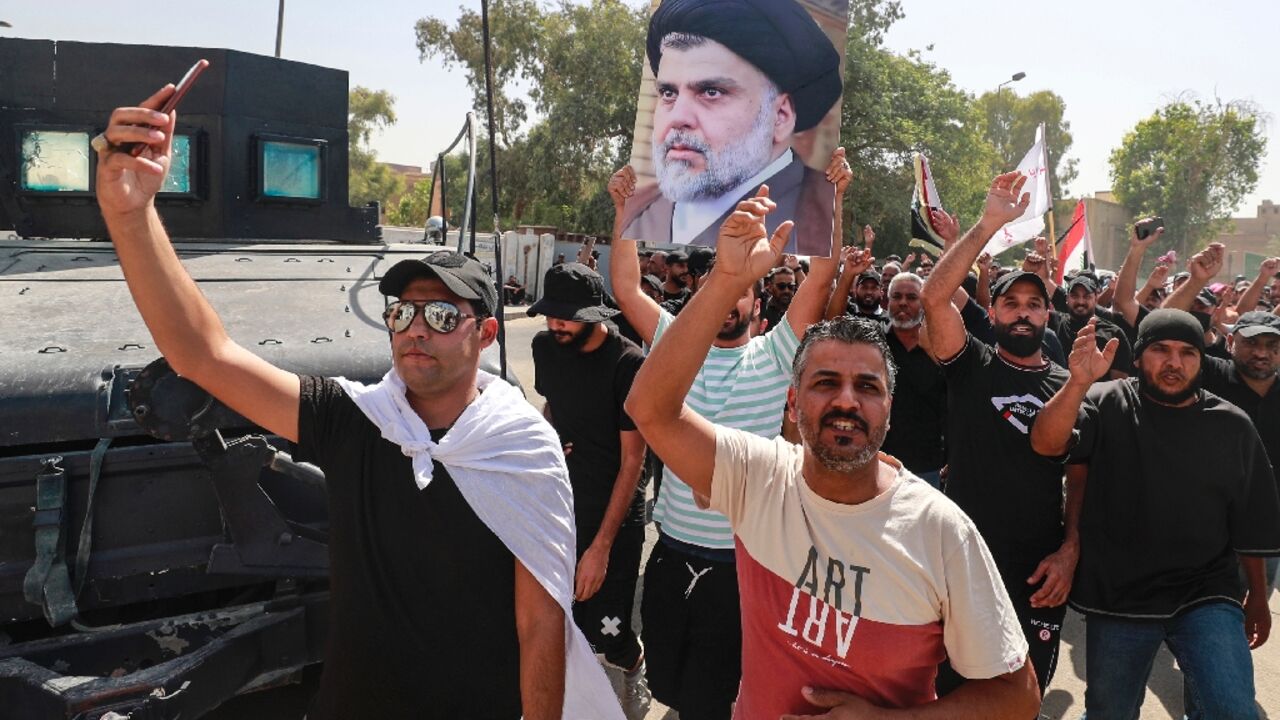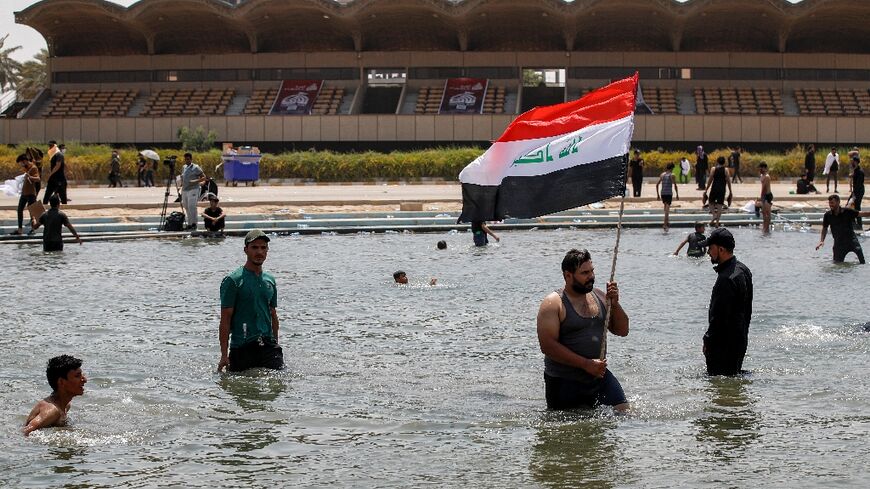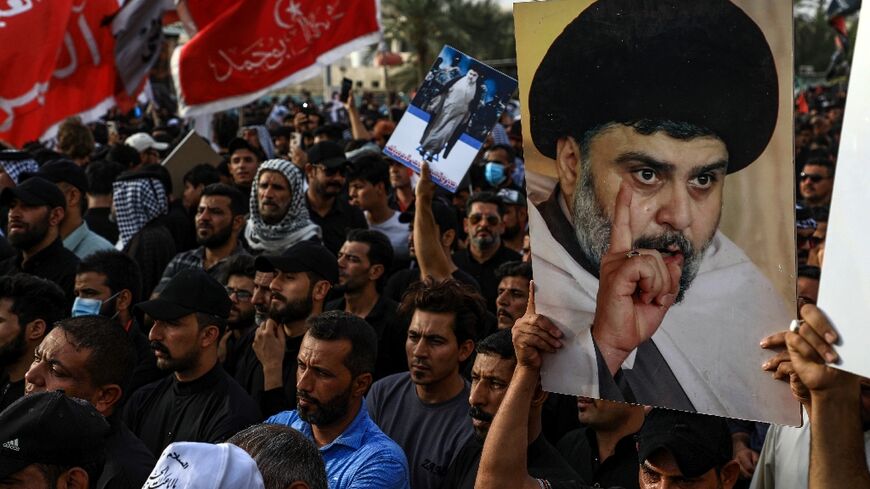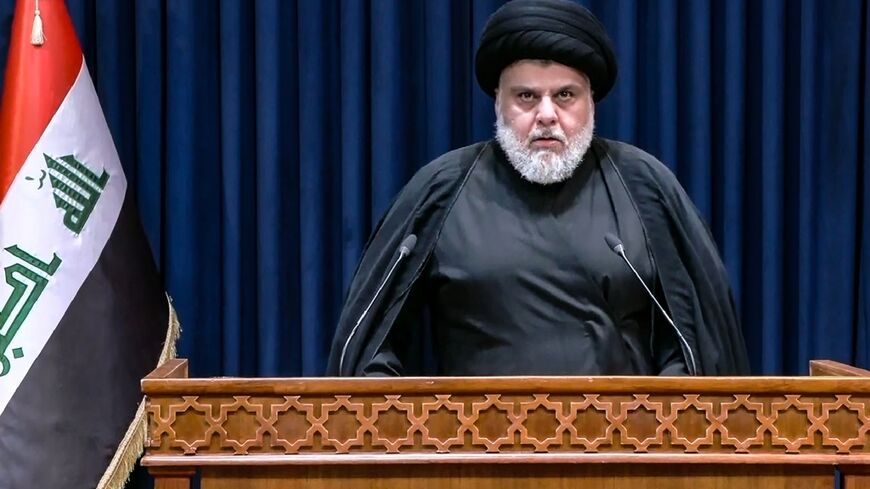Iraq's Sadr sets deadline to dissolve parliament

Iraq's powerful Shiite Muslim leader Moqtada Sadr on Wednesday called on the judiciary to dissolve parliament by the end of next week, urging his supporters to keep up a sit-in outside the legislature.
Iraq, which has been without a new government in the wake of elections last October, has been facing a deepening political crisis after Sadr's supporters stormed parliament late last month.
They have since shifted their sit-in -- held in opposition to a rival Shiite bloc's nomination for premier -- to outside the legislature in Baghdad's normally high-security Green Zone, home to government and diplomatic buildings.
Sadr has demanded the dissolution of parliament and early elections.
"Some may say that the dissolution of Parliament requires a parliamentary session," Sadr said in a statement on Twitter.
Preferring to stay in power and preserve "corruption", some blocs do not want to "give in to the people's demand", he charged.
Addressing the "competent judicial authorities", Sadr called for the dissolution no later than "the end of next week".
Doing so, he said, would allow the president "to set the date for early elections, under conditions that we will announce later".
Sadr justified his calls for judicial action by noting that constitutional deadlines for appointing a new president and prime minister have been missed following last year's legislative elections.
Sadr's Shiite rivals from the Coordination Framework, a coalition of influential, pro-Iran factions, have conditionally accepted the firebrand cleric's call to dissolve parliament and hold new polls.
The Coordination Framework includes lawmakers from the party of former prime minister Nuri al-Maliki, a longtime Sadr foe, and the Hashed al-Shaabi, a pro-Iran ex-paramilitary network now integrated into the security forces.
Maliki earlier this week had called for parliamentary sessions to resume in order to study a possible dissolution of the body.
Under the constitution, a vote passed by an absolute majority is required to dissolve parliament.
A vote can be requested by a third of lawmakers, or by the prime minister with the president's approval.
Later Wednesday, the Coordination Framework in a statement referred to discussions with other parties to "accelerate the designation of a candidate for president".
It called on political forces to "continue constructive dialogue" to find a solution to the crisis and to "form a government capable of meeting the challenges... in particular in the areas of energy and water shortages".
Alluding to the Sadrist camp without naming it, the coalition called for "respecting judicial and legislative institutions" and "not preventing them from exercising their constitutional functions".
Sadr's bloc emerged from the last elections as parliament's biggest, but still far short of a majority.
In June, his 73 lawmakers quit in a bid to break the logjam.
On Wednesday, he also invited those MPs and his supporters to take legal action to demand that parliament be dissolved.





